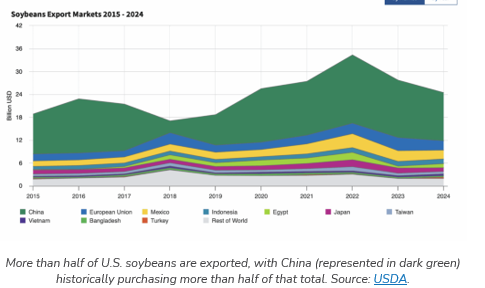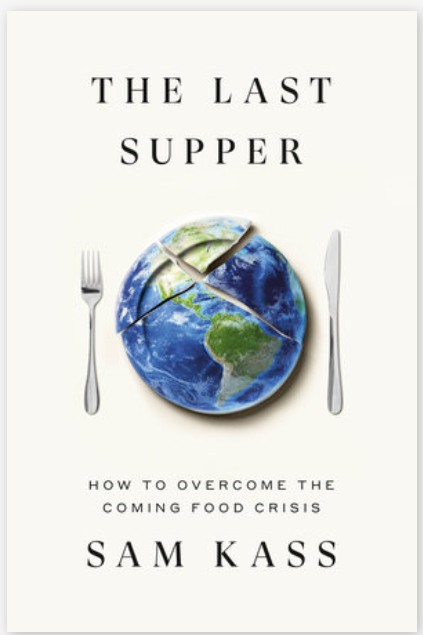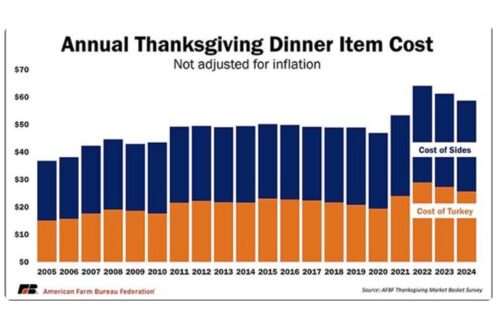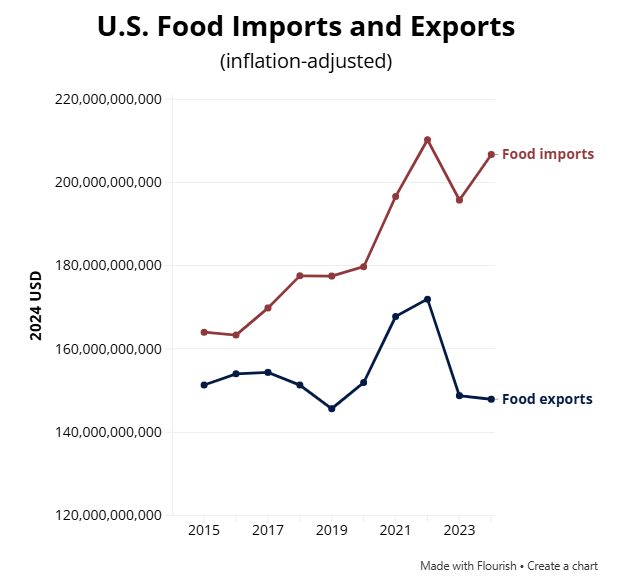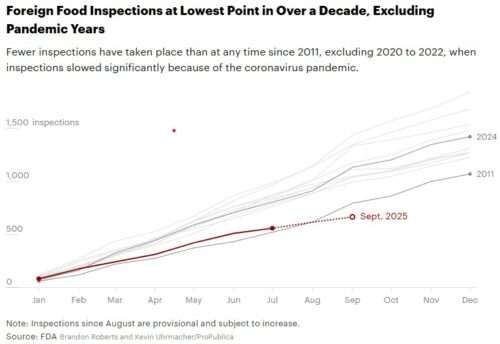What’s going on with soybeans? Farm Action to the rescue
If you are wondering about the effects of China’s not buying US soybeans (and the Trump administrations bailout of Argentinean soybeans), Farm Action says the real problem started decades ago.
Its analysis is well worth reading.
The numbers reveal how concentrated our agricultural system has become. In 2024:
- Soybeans were the number one U.S. agricultural export, worth about $24.5 billion.
- More than half of all U.S. soybeans were exported, and China historically bought more than half of that total (roughly $12.6 billion worth).
- Soybeans contributed $46.9 billion to total U.S. farm income.
The current crisis, it says, is “the result of decades of decisions that put export growth ahead of food security at home.”
Farm Action wants agricultural policies that will break the cycle of overproduction and bailouts.
- Grow food, not just livestock feed crops: Incentivize production of fruits, vegetables, and nutrient-dense crops for local markets.
- Reform subsidies: Redirect federal spending away from endless bailouts and toward programs that reward resilience and healthy food production.
- Rebuild local infrastructure: Invest in regional processing, storage, and distribution to give farmers alternatives to export markets.
- Break up corporate monopolies: Enforce antitrust laws to restore competition in input and processing markets.
How to do this, it does not say. But these goals are worth advocacy.
Start on them now.
We might get lucky.

